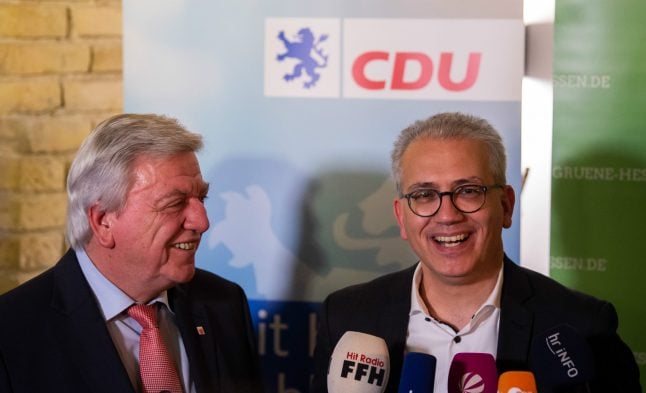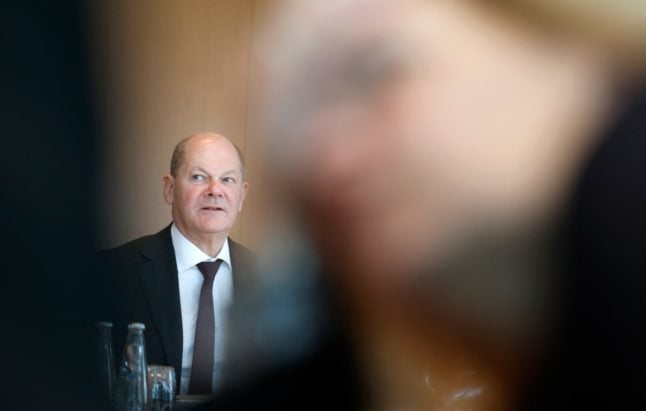Almost eight weeks after the state elections that prompted Angela Merkel to give up the top party post, the CDU and Greens have agreed on a new coalition deal. It involved an 11-hour negotiation marathon on Tuesday, which happened to be CDU state premier Volker Bouffier’s 67th birthday.
The agreement marks a continuation of the black-green government alliance, which has been in power in Hesse since the beginning of 2014.
SEE ALSO: End of an era: What you need to know about Merkel's planned departure
Bouffier and his deputy Tarek Al-Wazir, of the Greens, said they were very satisfied with the negotiations.
“We are through. We have reached an agreement,” said a visibly relieved Bouffier in Hesse's capital Wiesbaden on Wednesday. “We have a coalition agreement,” he added. “We are building on the trusting cooperation that we have maintained over the past few years.”
“We are very different parties, but we also complement each other,” stressed Al-Wazir, pointing to the fact the parties each stand at different ends of the political spectrum. Nevertheless, the election results, which saw Merkel’s CDU dip to 27 percent – its worst result in 50 years – presented the government partners with new challenges.
In a success story that's been repeated in other parts of Germany including Bavaria, the Greens have seen their stock rise. In Hesse the party gained 8.7 percentage points, reaching 19.8 percent. This propelled it to the second strongest party in the state, ahead of the SPD.
SEE ALSO: Why is the Green party suddenly flying high in Germany?
'Digital development to be a focus'
So what does it all mean for Hesse? At this point we know there will be 11 ministers under the leadership of Bouffier and his deputy Al Wazir. A new department for digital development, which will be given to the CDU, is expected to be a focal point for the coalition as it seeks to strengthen the central German state in this area.
Due to the Greens becoming stronger in the state elections, the CDU will hand over two of its previous ministries: social affairs and integration, as well as science and art. This means that the Greens will have four posts and the CDU seven. Housing and construction will be bundled together into the ministry led by Al-Wazir.
After the state elections on October 28th, the CDU and the Greens are only able to continue their team work with a wafer-thin majority. There had been delays in negotiations after it emerged that there were computer glitches on election night. A recount took place and resolved the issue after it found no real change to the original result.
SEE ALSO: Merkel's CDU and Greens can breathe sigh of relief after vote recount in Hesse
The new negotiated contract is to be put to the vote at party meetings this Saturday. The CDU is to meet in Nidda and the Greens in Hofheim.
At their meeting, the Greens also want to nominate their candidates for ministerial posts. Bouffier announced that the CDU would clarify staff changes after the winter break. If all goes according to plan, the new state government will be constituted on January 18th.
Despite their drop in votes, the CDU remains the strongest force in Hesse. But compared to the previous state election, the party slipped by 11.3 percentage points. This result, along with the dismal results by the CDU's sister part the Christian Socialists, in the Bavaria state elections, prompted turmoil in the party.
The day after the Hesse election, Merkel announced she was to step down as leader of the CDU after 18 years at the top of the party. She gave up the chair at the party conference earlier this month, handing it over to Annegret Kramp-Karrenbauer who won the party vote.



 Please whitelist us to continue reading.
Please whitelist us to continue reading.
Member comments